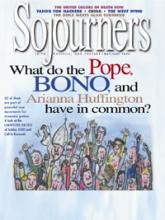Pity is a distraction,
I’m too mean to die.
—Vassar Miller
Late at night, I was nearly asleep on the couch; the phone rang. Jay Leach, the Baptist minister from Houston. Did I remember him? In my grogginess, there was no mistaking his tone: At 74, Vassar Miller’s seemingly endless life had been eclipsed by a final silence.
Poet, self-taught theologian, disability advocate, and feisty woman—Vassar Miller’s life was a confluence of desire, hope, and dire suffering. Few writers have been so unfailingly honest and determined to chink from the bounds of American letters a place for themselves. Paradoxically, save the admiration of a dozen of our most respected poets, she went to her grave in virtual anonymity.
A poet who wrote predominantly in traditional forms, she was among a handful of post-war formalists who wrote on religious themes. When you consider this was during the height of the Beats and the Confessional poets, choosing to write in form was not an idle undertaking. To paraphrase poet and critic Hayden Carruth, to write a poem is an act of love; ergo, Miller wrote the poems that had to be written. Those who cherish finely crafted poetry about spiritual issues, the struggle to find one’s self amidst a mostly godless world, read Vassar Miller. Not just for her countenance, but for her unflinching attempts to name the experience of an invisible woman, as in "Meditation after an Interview":
I speak myself, and my name
is only smoke
and less than smoke.
Read the Full Article
